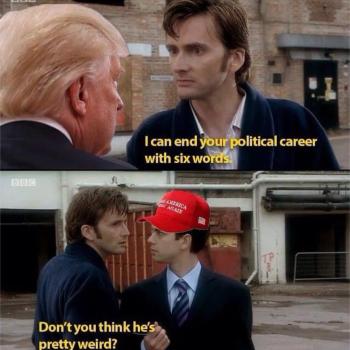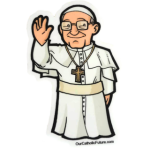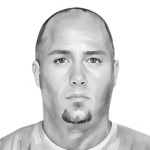This classic episode of Doctor Who, “The Time Monster
,” is arguably one of the best for discussing the show’s interaction with religion. It has points at which ancient Greek mythology, Buddhism, and Christianity are in view.
The story focuses on the attempt by the Master to summon Kronos, the Greek god who apparently really exists as a dangerous chronovore in interstitial time. Here, as in The Daemons and many other episodes which intersect with classic mythology, the answer about the reality of those entities is ambiguous. It is thus in the episode’s dialogue:
RUTH: Are you trying to tell us that the classical gods are real?
DOCTOR: Well, yes and no.
The episode connects the present day with ancient Atlantis, where a crystal existed that made it possible to summon Kronos. The Master seeks that power.
One of the best characters in the episode is the king of Atlantis, Dalios, who interacts with the Master in several scenes of which this is particularly significant:
MASTER: You will obey me. You will obey me!
DALIOS: A very elementary technique of fascination. I’m too old a fish, too old in years and in the hidden ways to be caught in such a net. You are no emissary from the gods.
MASTER: But you saw
DALIOS: Tell me, then. What of great Poseidon? What did he have for breakfast? Fish, I suppose? And what of Zeus and Hera? What is the latest gossip from Olympus? Do tell me.
MASTER: I underestimated you, Dalios.
DALIOS: I’m no child to play with such painted dolls. Kronos is no god, no titan. I know that and so do you.
MASTER: The king is old in wisdom.
DALIOS: Now you try to flatter me. You’ll pull a string and want to see me dance. You shall not have the crystal.
MASTER: I shall go now. I have nothing more to say to you.
DALIOS: You have said nothing to me yet. When you find the true words to speak, I will listen.
 Throughout much of the episode, Kronos seems like little threat to the universe. When Kronos appears, what we see looks rather like a person pretending to be a deranged chicken flapping about. But at the end of the episode, when the Doctor, Jo, and the Master find themselves caught in between their own reality and that in which Kronos resides, Jo mistakes it for heaven. Then, Kronos appears as a giant female face, and she says that just as she is beyond gender, so she is beyond good and evil, and can be destroyer, healer, or creator.
Throughout much of the episode, Kronos seems like little threat to the universe. When Kronos appears, what we see looks rather like a person pretending to be a deranged chicken flapping about. But at the end of the episode, when the Doctor, Jo, and the Master find themselves caught in between their own reality and that in which Kronos resides, Jo mistakes it for heaven. Then, Kronos appears as a giant female face, and she says that just as she is beyond gender, so she is beyond good and evil, and can be destroyer, healer, or creator.
Kronos of course is related to the Greek word for time, and it is on that level that the symbolism of the classic myth works. Time destroys and creates, and then eats the children it has produced. But on a literal level, the story become harder to make sense of.
The theme of the universe being easy to destroy is present. The Doctor says “The whole of creation is very delicately balanced in cosmic terms.” The unleashing of Kronos would allow chaos to reign instead of the fine balance between order and chaos that is there now. This of course raises the question of how such a finely balanced or “fine tuned” cosmos came to have such properties.
That scene in the episode includes the very famous bit of dialogue in which the Doctor talks about a hermit who lived near his home on a mountainside on Gallifrey:
JO: What happens if the Master wins?
DOCTOR: Well, the whole of creation is very delicately balanced in cosmic terms, Jo. If the Master opens the floodgates of Kronos’ power, all order and all structure will be swept away, and nothing will be left but chaos.
JO: Makes it seem so pointless really, doesn’t it.
DOCTOR: I felt like that once when I was young. It was the blackest day of my life.
JO: Why?
DOCTOR: Ah, well, that’s another story. I’ll tell you about it one day. The point is, that day was not only my blackest, it was also my best.
JO: Well, what do you mean?
DOCTOR: Well, when I was a little boy, we used to live in a house that was perched halfway up the top of a mountain. And behind our house, there sat under a tree an old man, a hermit, a monk. He’d lived under this tree for half his lifetime, so they said, and he’d learned the secret of life. So, when my black day came, I went and asked him to help me.
JO: And he told you the secret? Well, what was it?
DOCTOR: Well, I’m coming to that, Jo, in my own time. Ah, I’ll never forget what it was like up there. All bleak and cold, it was. A few bare rocks with some weeds sprouting from them and some pathetic little patches of sludgy snow. It was just grey. Grey, grey, grey. Well, the tree the old man sat under, that was ancient and twisted and the old man himself was, he was as brittle and as dry as a leaf in the autumn.
JO: But what did he say?
DOCTOR: Nothing, not a word. He just sat there, silently, expressionless, and he listened whilst I poured out my troubles to him. I was too unhappy even for tears, I remember. And when I’d finished, he lifted a skeletal hand and he pointed. Do you know what he pointed at?
JO: No.
DOCTOR: A flower. One of those little weeds. Just like a daisy, it was. Well, I looked at it for a moment and suddenly I saw it through his eyes. It was simply glowing with life, like a perfectly cut jewel. And the colours? Well, the colours were deeper and richer than you could possibly imagine. Yes, that was the daisiest daisy I’d ever seen.
JO: And that was the secret of life? A daisy? Honestly, Doctor.
DOCTOR: Yes, I laughed too when I first heard it. So, later, I got up and I ran down that mountain and I found that the rocks weren’t grey at all, but they were red, brown and purple and gold. And those pathetic little patches of sludgy snow, they were shining white. Shining white in the sunlight. You still frightened, Jo?
JO: No, not as much as I was.
The ideas of being a hermit or monk, learning to perceive reality differently, and other aspects are reminiscent of Buddhism, and this is a running theme throughout the show’s history, from the Troughton era through the Pertwee to the Davison. There is also an interesting contrast between the hermit’s “secret knowledge” and the secret knowledge the Master seeks in the hope of controlling Kronos.
The episode also tackles Christian theology quite directly. When Kronos envisages keeping the Master there to suffer for imprisoning her and trying to control her, the Doctor pleads for his freedom, which is granted. When Jo asks the Doctor why he did that, his response is telling:
DOCTOR: Jo, would you condemn anybody to an eternity of torment? Even the Master?
JO: No. No, I guess I wouldn’t.
DOCTOR: No. Well, neither would I. Even though he was responsible for the destruction of Atlantis.
This could have been discussing the Christian notion of eternal punishment directly. Even though it wasn’t doing so explicitly, it provides a wonderful launching point for such a discussion.
So, lots to talk about in this episode!

















